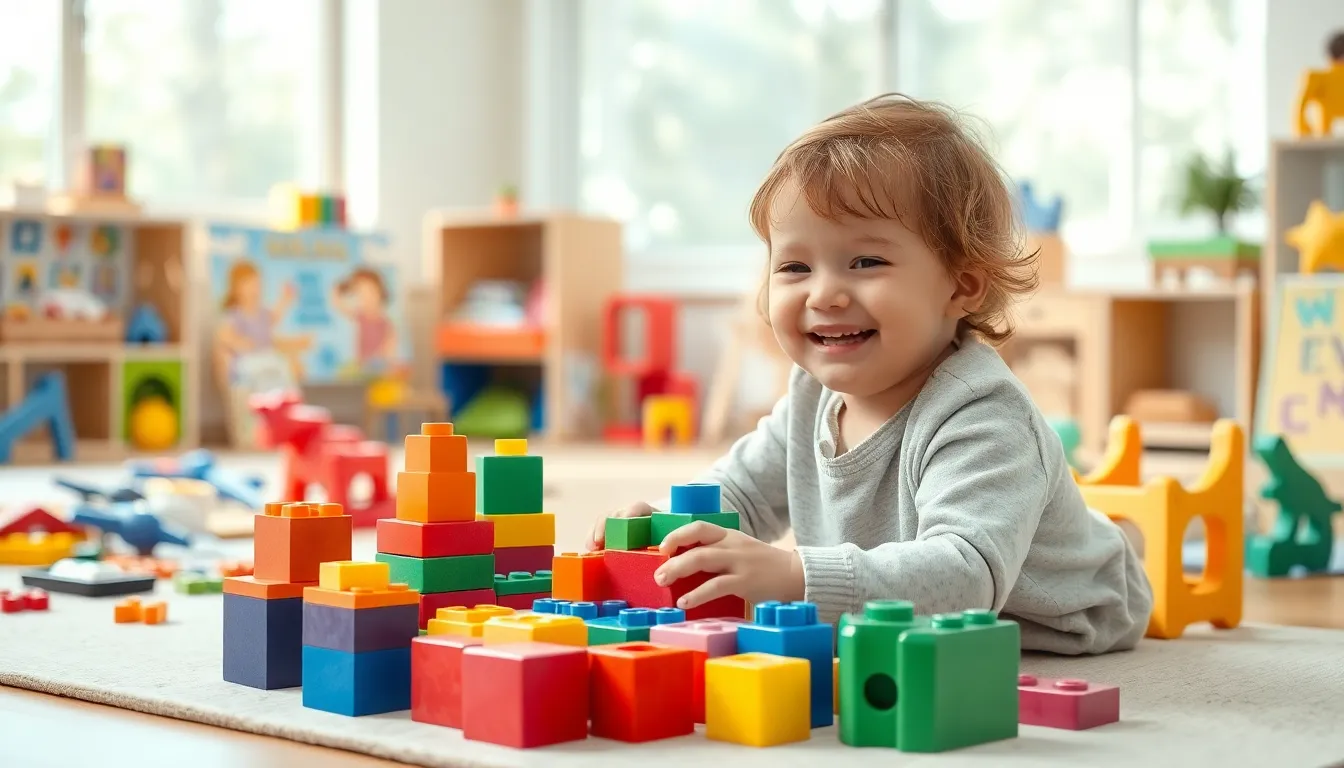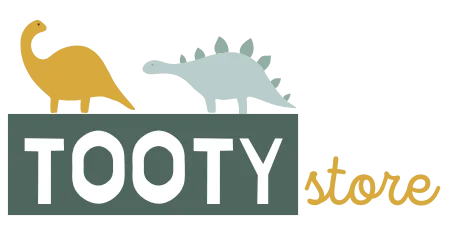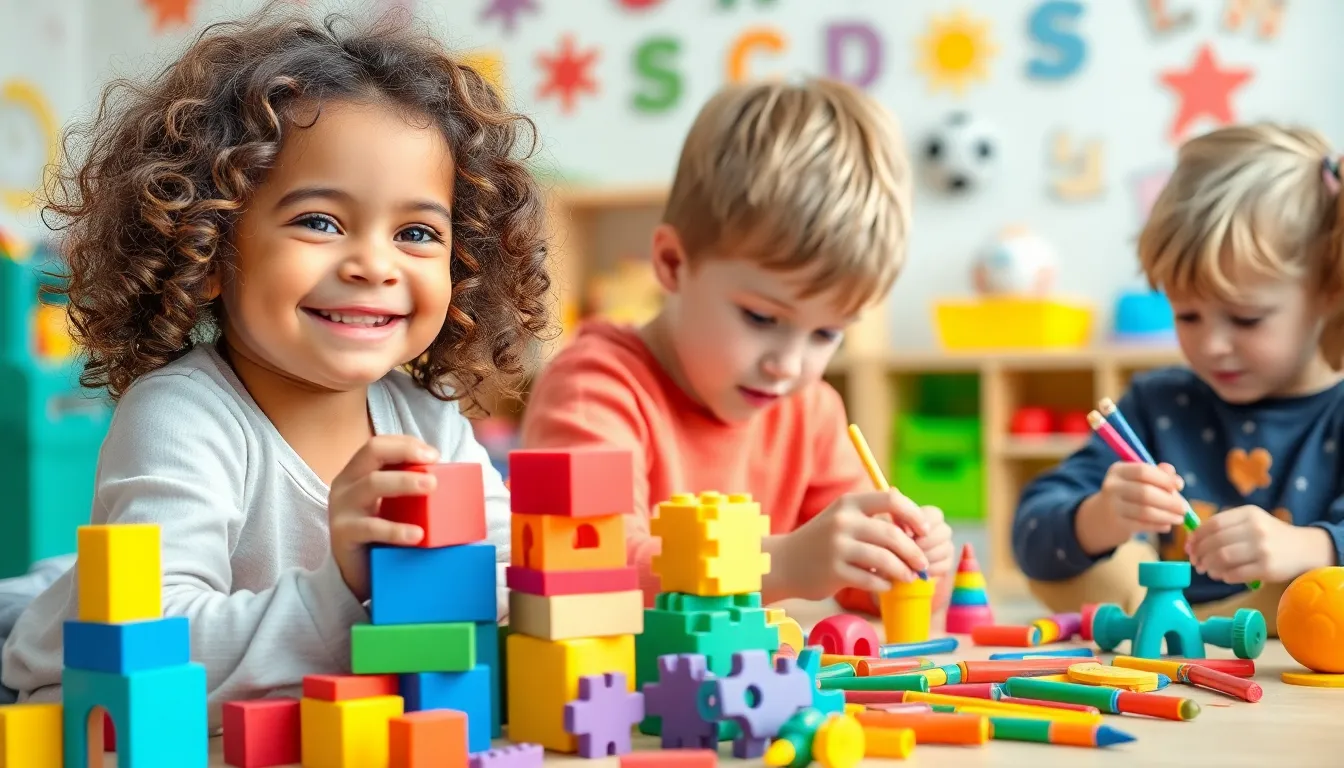Table of Contents
ToggleIn today’s fast-paced world, finding the right educational tools for preschoolers is essential for fostering early development. Learning toys not only entertain but also stimulate young minds, helping them grasp foundational concepts in a fun and engaging way. These toys can enhance critical thinking, creativity, and social skills, setting the stage for lifelong learning.
Parents and educators alike are increasingly recognizing the value of learning toys in nurturing curiosity and cognitive growth. With countless options available, choosing the right toys can feel overwhelming. This article explores the best learning toys for preschoolers, highlighting their benefits and how they can make a significant impact on a child’s early educational journey.
Overview of Learning Toys for Preschoolers
Learning toys for preschoolers serve as essential tools in nurturing cognitive, social, and emotional development. These toys encompass a wide range of categories, including puzzles, building blocks, art supplies, and electronic devices. Each category presents unique benefits tailored to support various aspects of a child’s growth.
Types of Learning Toys
- Puzzles
Puzzles enhance problem-solving skills and improve hand-eye coordination. Options include jigsaw puzzles, shape sorters, and matching games.
- Building Blocks
Building blocks stimulate creativity and spatial awareness. Variants range from traditional wooden blocks to magnetic and foam blocks.
- Art Supplies
Art supplies encourage self-expression and fine motor skills. Examples include crayons, markers, paints, and crafting kits.
- Educational Games
Educational games promote social interaction and strategic thinking. Examples include board games designed for cooperative play and card games that encourage memory skills.
- STEM Toys
STEM toys focus on science, technology, engineering, and mathematics concepts. Options include coding robots, science kits, and engineering sets.
Key Benefits of Learning Toys
- Cognitive Development
Learning toys enhance cognitive functions by challenging preschoolers with age-appropriate tasks.
- Social Skills
Many toys foster collaboration and communication among peers, helping children develop vital social skills.
- Creative Thinking
Open-ended toys inspire imaginative play, encouraging children to think creatively and explore new ideas.
- Motor Skills
Manipulative toys contribute significantly to the development of fine and gross motor skills through hands-on play.
Learning toys for preschoolers play a crucial role in laying the foundation for lifelong learning. Selecting the appropriate toys aligns with specific developmental goals, ensuring children gain maximum benefit from their playtime experiences.
Benefits of Learning Toys

Learning toys offer significant advantages, especially in preschoolers’ early development. These toys stimulate growth across various domains, laying a solid foundation for lifelong learning.
Cognitive Development
Cognitive development benefits from learning toys by promoting problem-solving and critical thinking skills. Puzzles require children to think strategically as they fit pieces together. Building blocks enhance spatial awareness and encourage creative solutions. Educational games often present challenges that require logical reasoning and memory recall. STEM toys introduce fundamental concepts in science, technology, engineering, and mathematics, fostering curiosity and analytical thinking. Research shows that engaging with these types of toys significantly boosts brain development during crucial early years.
Social Skills Enhancement
Social skills develop through cooperative play with learning toys. Engaging in group activities, such as educational games, encourages communication and teamwork. Children practice sharing, negotiating, and problem-solving with peers while using building blocks or art supplies. Role-play toys further enhance empathy and understanding of social dynamics, allowing children to navigate their emotions and interactions. Engaging with others during play builds confidence and helps preschoolers form friendships, crucial for emotional and social growth.
Types of Learning Toys
Learning toys come in various forms, each catering to different aspects of a child’s development. Understanding these types helps parents and educators select the most beneficial options for preschoolers.
Educational Games
Educational games engage preschoolers in fun, interactive ways that reinforce essential skills. These games typically focus on areas such as math, vocabulary, and problem-solving. Board games promote strategic thinking and social interaction, while card games enhance memory and concentration. Technology-based learning games provide an additional layer of engagement through interactive components, further aiding cognitive development.
Building and Construction Toys
Building and construction toys foster creativity and spatial reasoning in preschoolers. Popular options include building blocks, magnetic tiles, and construction sets, which allow children to explore structural concepts. These toys encourage hands-on learning and improve fine motor skills as children manipulate and assemble pieces. Working on construction projects also promotes collaboration, as children often engage in group play, enhancing their social skills.
Arts and Crafts Supplies
Arts and crafts supplies provide preschoolers opportunities for self-expression and creativity. These materials include crayons, markers, glue, paper, and modeling clay, which allow children to explore different artistic mediums. Engaging in creative activities fosters imagination and critical thinking, while also developing fine motor skills. Group art projects can also cultivate teamwork and communication as children share ideas and collaborate on their creations.
Factors to Consider When Choosing Learning Toys
Choosing the right learning toys for preschoolers requires careful consideration of several factors. Age appropriateness and safety standards play key roles in ensuring that toys are beneficial and secure for young children.
Age Appropriateness
Age appropriateness determines if a toy aligns with a child’s developmental stage. Toys designed for specific age ranges typically offer suitable challenges and engagement. For instance, puzzles suited for preschoolers should feature larger pieces that enhance fine motor skills without posing choking hazards. Building blocks with varied sizes can stimulate creativity and spatial awareness in young learners. Selecting toys that match developmental abilities ensures that children remain interested and motivated to explore and learn effectively.
Safety Standards
Safety standards are essential when selecting learning toys for preschoolers. All toys should meet regulatory safety guidelines outlined by organizations such as the Consumer Product Safety Commission (CPSC). Look for toys that are free from harmful chemicals and small parts that could create choking hazards. Non-toxic materials, rounded edges, and sturdy construction enhance safety. Additionally, choosing toys tested for durability helps ensure they withstand active play, minimizing the risk of injury during use. Prioritizing safety guarantees a secure play environment that maximizes learning opportunities.
Popular Learning Toys for Preschoolers
Learning toys serve as essential tools in nurturing early development, providing preschoolers with enriching experiences while they play. Numerous brands and products stand out for their quality and educational benefits.
Top Brands
- Melissa & Doug: This brand features a diverse range of learning toys, focusing on classic wooden designs that promote imaginative play and fine motor skills.
- LeapFrog: Known for its educational electronics, LeapFrog offers interactive toys that teach letters, numbers, and problem-solving skills through engaging play.
- VTech: This brand specializes in electronic learning toys that enhance cognitive development with fun, interactive apps and games tailored for young learners.
- Lego: Offering building sets that encourage creativity and spatial reasoning, Lego fosters collaborative play while promoting STEM concepts.
- Play-Doh: This modeling compound stimulates creativity and fine motor skills, allowing children to explore self-expression through shaping and molding.
Trending Products
| Product Name | Type | Key Features |
|---|---|---|
| LeapFrog Scoop & Learn Ice Cream Cart | Role Play Toy | Teaches counting, flavors, and basic math through interactive play. |
| VTech Smarty Paws Puppy | Electronic Toy | Encourages language development and social skills through responsive interactions. |
| Melissa & Doug Wooden Puzzles | Puzzle | Develops problem-solving abilities and coordination with thematic designs. |
| Lego Duplo Town Farm Set | Building Toy | Stimulates creativity and role-play, focusing on farm themes and animal recognition. |
| Crayola Inspiration Art Case | Art Supplies | Promotes artistic expression with various mediums for creativity and fine motor skill enhancement. |
These popular brands and trending products illustrate the variety of learning toys available. Each item serves a unique purpose, supporting children’s growth across cognitive, social, and emotional domains.
Choosing the right learning toys for preschoolers can significantly impact their development. These toys not only entertain but also nurture essential skills that lay the groundwork for future learning. By fostering creativity, critical thinking, and social interaction, learning toys serve as powerful tools in a child’s growth journey.
Parents and educators can make informed decisions by considering age appropriateness and safety standards. With a wide variety of options available, from puzzles to STEM toys, there’s something to engage every child’s interests. Investing in quality learning toys ensures a fun and enriching playtime experience that supports cognitive and emotional development.




